
The Business of Fashion
Agenda-setting intelligence, analysis and advice for the global fashion community.

Agenda-setting intelligence, analysis and advice for the global fashion community.
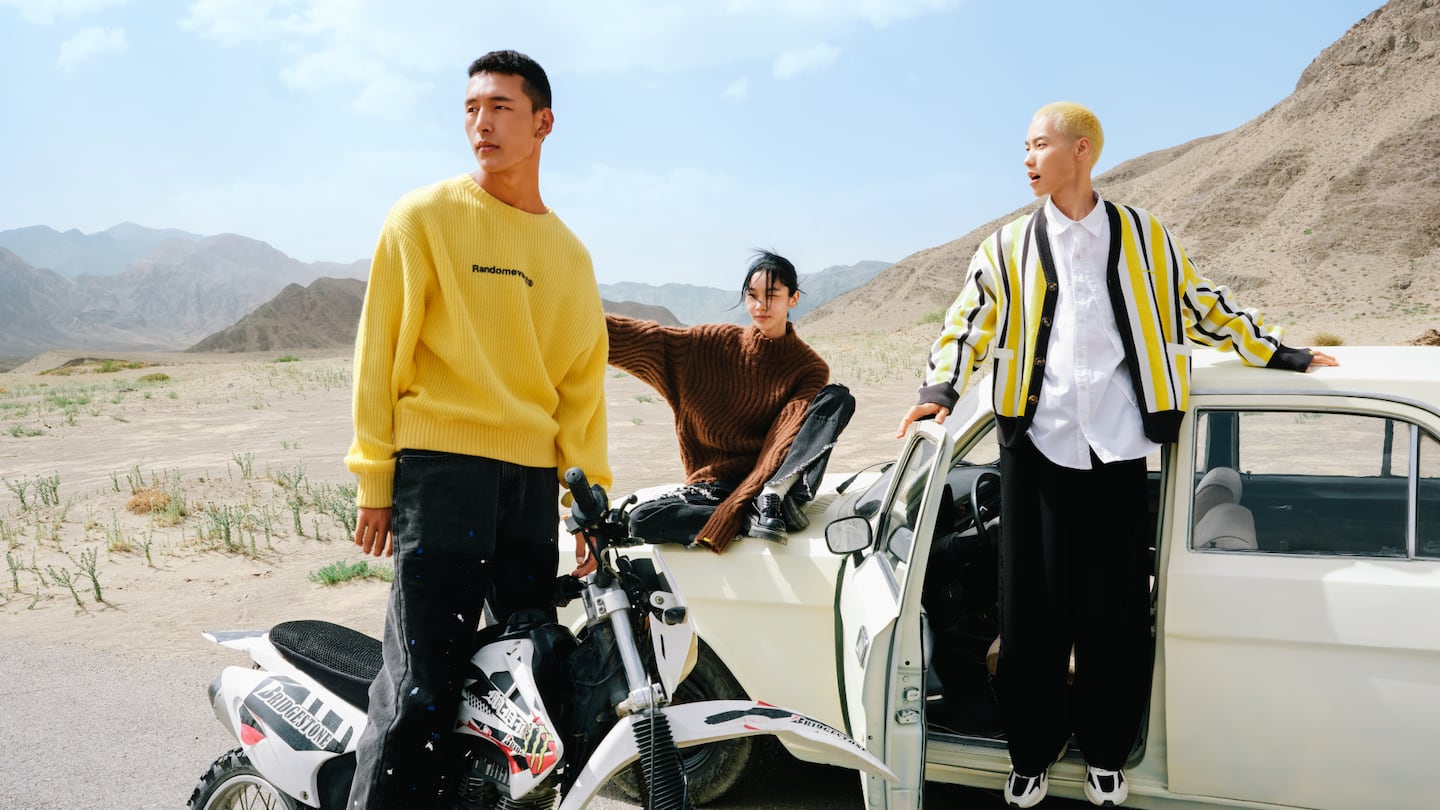
China’s streetwear aesthetic is attracting a truly global audience. With 2.1 billion views on TikTok, #chinesestreetfashion is now one of the platform’s most viral trends. And with good reason.
International mega-brands have been ramping up collaborations with all sorts of Chinese streetwear players in recent years, while local brands increasingly offer products that are more desirable than ever to global buyers. But apart from entrepreneurs like Yang Bing, Peter Zhong and Edison Chen behind platforms Poizon, Nowre and Clot, little is known outside the country about the people shaping its increasingly influential streetwear scene.
The lack of detail around the other main protagonists has been exacerbated by the fact that China’s burgeoning streetwear ecosystem has come under intense pressure since the onset of the pandemic, with several once-successful industry leaders faltering, after promising starts.
“In the past, [certain companies] in the Chinese market gave people the impression of rapid scale and high growth,” said Chinese streetwear and retail specialist Bofung Li, founder of Kiks, a Shanghai-based company that spans a chain of multi-brand stores, a content platform and retail consultancy. “But now, to be successful I think each brand needs a [more] unique personality, then it can identify its style and loyal audience [better].”
ADVERTISEMENT
Last year, it was reported that Liang Chao’s streetwear media and e-commerce empire Yoho, one of the country’s most influential youth culture platforms whose businesses included magazines, stores, and the trade show Yohood, was facing escalating financial troubles.
Meanwhile, Innersect, a streetwear festival founded by celebrity designer Edison Chen appears to have run into difficulties too. The annual event, which has collaborated with Adidas and attracted some of fashion’s biggest names including A$ap Rocky and Supreme creative director Tremaine Emory, has not updated its Instagram page since the end of its postponed 2021 edition in Shanghai in January.
These platforms are not the only ones facing a difficult operating environment, suggests Li. “With the uncertainty of the new normal in China, most of the streetwear brands have been experiencing challenges recently [too].”
Despite the challenges most businesses continue to face due to China’s strict zero-Covid policies and the vacuum left by struggling incumbent platforms, a growing number of home-grown Chinese streetwear labels and retailers are gaining in popularity — both at home and abroad — thanks in part to co-branded collaborations with global players like Nike, Asics and New Balance.
Given the scale and dynamism of the wider China market, streetwear is inevitably big business in the country, valued at $15 billion last year, according to investment bank CITIC Securities. But the anti-establishment nature of the subcultures which traditionally underpin streetwear — such as hip-hop and skateboarding — made it harder for the category to catch on there, said Jonathan Travers-Smith, founder of strategic marketing agency Hot Pot China.
“There is less of that history, as people are not going out at night skating and graffitiing up walls in the same way as they’d do in America,” said Travers-Smith. As a result, “It feels like the scene is a little bit more niche and less mainstream there than it is in the West,” said Sadie Bargeron, collaborations and drops editor at media outlet Jing Daily.
While this does mean there are unique challenges for the category to overcome, it also suggests high growth potential. After all, China’s youngest consumers are the ones driving the rapid adoption of streetwear. As of 2021, youth culture content platform Poizon (locally known as Dewu) recorded 81 million monthly active users, around 90 percent of whom were classified as Gen-Z, according to Elena Gatti, managing director of Azoya Europe, a Shenzen-based digital commerce advisory firm.
No wonder late arriving international brands are eager to put down roots. Last week, streetwear royalty Supreme announced its long awaited entry into China via Dover Street Market in Beijing. A Cold Wall, which recently opened its first two brick-and-mortar stores in Beijing and Shanghai, had its brand accelerator investor Tomorrow London partner with local agency Power Rich, to manage the brand’s retail, wholesale and e-commerce operations in the country.
ADVERTISEMENT
In recent years, however, even the most powerful global brands, like Nike and Adidas have faced mounting challenges from home-grown companies riding the wave of ‘guochao’ — a term that refers to the growing nationalism and pride Chinese consumers feel in buying locally designed or locally made goods.
China’s broader sportswear market, dominated by domestic giants Anta and Li-Ning, which are both proponents of local streetwear and sneaker culture, is expected to grow at annual rate of 11 percent and reach an estimated $82.8 billion by 2024, according to a US International Trade Administration report.
Ding Shizhong, founder and chief executive of Anta Sports, and Li Ning, the Olympic gold medallist gymnast who founded and leads his eponymous athletic apparel and footwear brand as executive chairman, have built colossal businesses by packing performance gear alongside streetwear, sneakers and basketball culture in a relevant way to the Chinese mass market.
Through “Way of Wade,” Li-Ning’s long-term collaboration with NBA All-Star Dwyane Wade, Li-Ning has found success in translating hype from its association with an elite athlete to a sub-label of coveted clothing, sneakers and accessories, similar in strategy to Nike’s Jordan line and Under Armour’s deal with basketball star Stephen Curry.
Li-Ning’s larger rival, Anta Group, has benefitted considerably from its M&A strategies, particularly the 2019 acquisition of Amer Sports, which in turn owned Salomon and Arc’teryx, two names central to the technical outdoor wear “gorpcore” revolution which has taken streetwear — and fashion more broadly — by storm in recent years.
Capitalising on the cool factor of its ownership of Arc’teryx, Anta then tapped prolific American footwear designer Salehe Bembury, formerly of Yeezy and Versace, back in 2020, to design a sneaker line which proved a hit.
But with the streetwear category gradually finding a more diverse customer base in China, there is a growing trend among some to favour buying “niche, more maverick” labels, said Gatti.
In September, Nike collaborated with Shanghai streetwear label Doe on a co-branded apparel collection, and tapped the label founded by Terry Zhu to throw a party at the brand’s store. This reflects a growing interest from global sportswear brands to capitalise on local streetwear brands and sneaker culture in China.
ADVERTISEMENT
Doe, whose Shanghai boutique also stocks international streetwear brands and has previously collaborated with Dutch streetwear major Patta, was co-founded by Zhu in 2014. Such big name collaborations are powerful drivers of hype among young — and predominantly male — luxury consumers in China, according to a joint report by Hot Pot China and The Future Laboratory, a strategic consultancy firm.
Other fast-growing Chinese streetwear brands are finding success in the maturing category.
Younker Hong founded Randomevent back in 2012 but the streetwear label’s aesthetic, which blends staples like tracksuits and puffers with preppy knitwear pieces, fleeces and cargo pants, has gained widespread popularity across China and is designed “to create a streetwear brand that belongs to young Chinese people,” Hong told BoF.
“At the time of founding the brand, I felt a really deep influence from overseas street culture,” said Hong, who hails from Wuxi, Jiangsu, and took inspiration from Stüssy founder Shawn Stussy and Teddy Santis, founder of cult American menswear label Aimé Leon Dore.
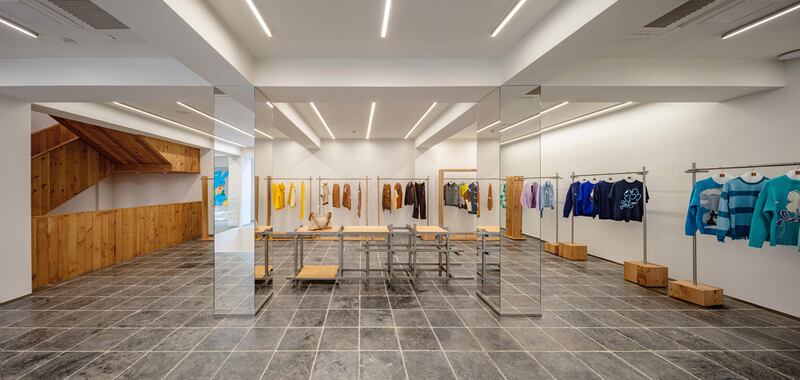
Randomevent operates seven minimalist brick-and-mortar concept stores across five cities in China, with one further planned this year in Chengdu. The brand encapsulates the collaboration-heavy zeitgeist of the booming streetwear scene in China, offering its international partners a gateway into its sizeable following of almost 1.41 million followers on Taobao alone.
In just the past few months, Randomevent has dropped collaborations with major sportswear players Reebok, Mizuno and Lacoste, as well as with cult outdoors brand Gramicci. It is also stocked abroad at streetwear boutiques like Alumni of NY in New York, and Stream in Milan, where it sits alongside cult international labels like Daily Paper, Maaps and New Era.
“There are so many [other] emerging brands that are popular in the subcultural scene now, like Roaring Wild, Melting Sadness, and skate brands like Avenue & Son,” said Bargeron. “Then there are the [fashion] brands that offer a more immaculate take on athleisure silhouettes, like Sankuanz, Pronounce and 8On8.”
Yang Cao, the founder of popular Shenzen-based streetwear label Roaring Wild also owns Banmen, a retailer in Shanghai that stocks an assortment of urban and utilitarian menswear brands from China and abroad.
As it was in America in the 1990s, China’s burgeoning streetwear scene is now being shaped not only by industry insiders but also celebrity entrepreneurs.
Hong Kong rapper Jackson Wang and hip-hop star MaSiWei see running fashion brands centred on the streetwear aesthetic as a viable business opportunity, raising the profile of the category. Wang founded the label Team Wang in 2017, and has quickly built up a loyal following according to his friend and business partner Henry Cheung. MaSiWei is the founder of AFKJ — also known as A Few Good Kids — the streetwear brand whose popular bomber jackets and skate culture aesthetic has landed partnerships with international brands like Hennessy.
But Edison Chen is one name that stands out as a pioneer of the scene. The Hong Kong-based actor, rapper and fashion designer partnered with fellow entrepreneur and personality Kevin Poon, to launch Clot in 2003, initially as a Hong Kong-based label geared at bringing street fashion to Chinese consumers but now more of a business “trying to bridge the East and the West.”
The brand has over 700,000 followers on Instagram, and today has stores worldwide, including several across mainland China, and outlets in Taiwan, Hong Kong and Los Angeles.
Over the years, Clot has collaborated with major streetwear names such as Stüssy, A Bathing Ape, Nike, Adidas and Converse. In August, Nike tapped Chen, the label’s creative director, to design a collaborative Clot x Air Jordan Delta 2 sneaker, part of the sportswear giant’s efforts to drive hype and sales for one of the lesser-loved Jordan brand silhouettes.
Chen is also behind multi-brand retailer Juice, which today is one of the leading streetwear destinations on offer in mainland China, according to Bargeron.
China’s streetwear retail landscape is also thriving, with an ever-expanding roster of multi-brand boutiques — such as Sherry Huang’s Eng, Banmen and B1ock offering both home-grown names and international labels which sit in between luxury and streetwear.
The founder of Kiks, Bofung Li, sensed a hobby developing into a business in the late 2010s, after he inadvertently became a sneaker reseller in China. Li, who is from Guangdong province, had been buying sneakers from Hong Kong and Japan and selling them to niche communities of sneakerheads in mainland China as early as 2005. He opened Kiks in 2014, after shuttering three sneaker and fashion stores he had in Guangzhou.
Alongside its multi-brand boutiques in Beijing and Shanghai and accompanying e-commerce sites on Tmall and Poizon, Kiks’ operations comprise content publishing and brand consultancy. In recent months, Li has supported international brands such as Herschel, Penfield and A Cold Wall to launch or relaunch their presence in China, advising on areas such as brand strategy, e-commerce and retail operations, Li said.
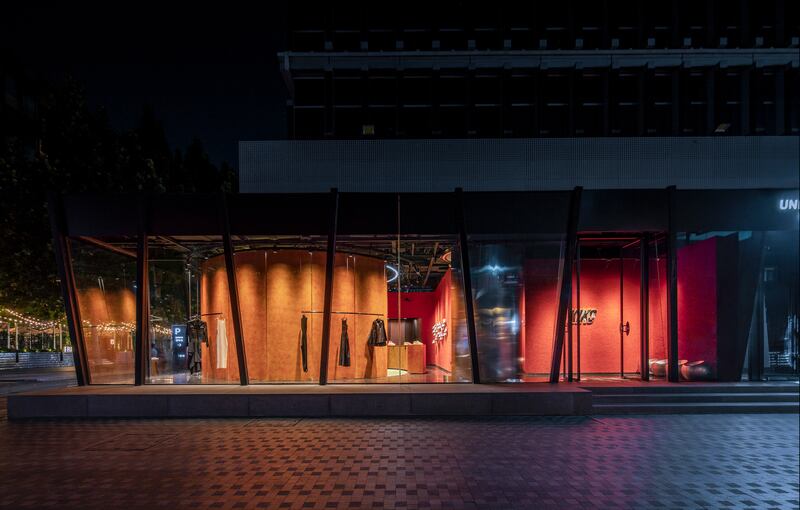
Kiks’ role in China’s international streetwear scene has been noted by large players in China and from overseas. The retailer released a pair of co-branded sneakers with Anta, while both Adidas and Asics, the former increasingly known for its roster of niche streetwear collaborations, also have tie-ups with the retailer.
Another cult multi-brand store playing an important role in translating the appeal of street culture in fashion to an audience of Chinese consumers is SoulGoods. Founded by veteran sneaker seller Ji Ming (also known as G Ming), the store has become a go-to destination for Chinese sneakerheads and streetwear aficionados to get their hands on rare products such as the various Off-White and Nike tie-ups of recent years.
Ming, a lifelong NBA and Michael Jordan fan, opened the original SoulGoods location in Beijing’s fashionable Sanlitun district in 2016 as a sneaker and streetwear destination, before starting to produce his own streetwear line the following year, and opening further stores in Shanghai and Chengdu.
“For keeping up-to-date with streetwear in China, there’s a ton of [media] titles,” said Bargeron, referencing Nowre, Hypebeast, Chao Media, Kidulty, Pro-Kicks and 1626.
These platforms serve as useful vehicles for international brands looking to penetrate the market through advertising and editorial.
Home-grown publications, such as online-only WeChat culture publication Nowally, and Bofung Li’s Kiks, are gaining in popularity. The latter’s fashion and Gen-Z culture publication has more than 800,000 followers on WeChat, and its dedicated female-consumer focussed WeChat channel has over 350,000 followers. It also has a print edition, which has featured both Chinese and international cover stars such as NBA player PJ Tucker and the revered Japanese streetwear designer Hiroshi Fujiwara.
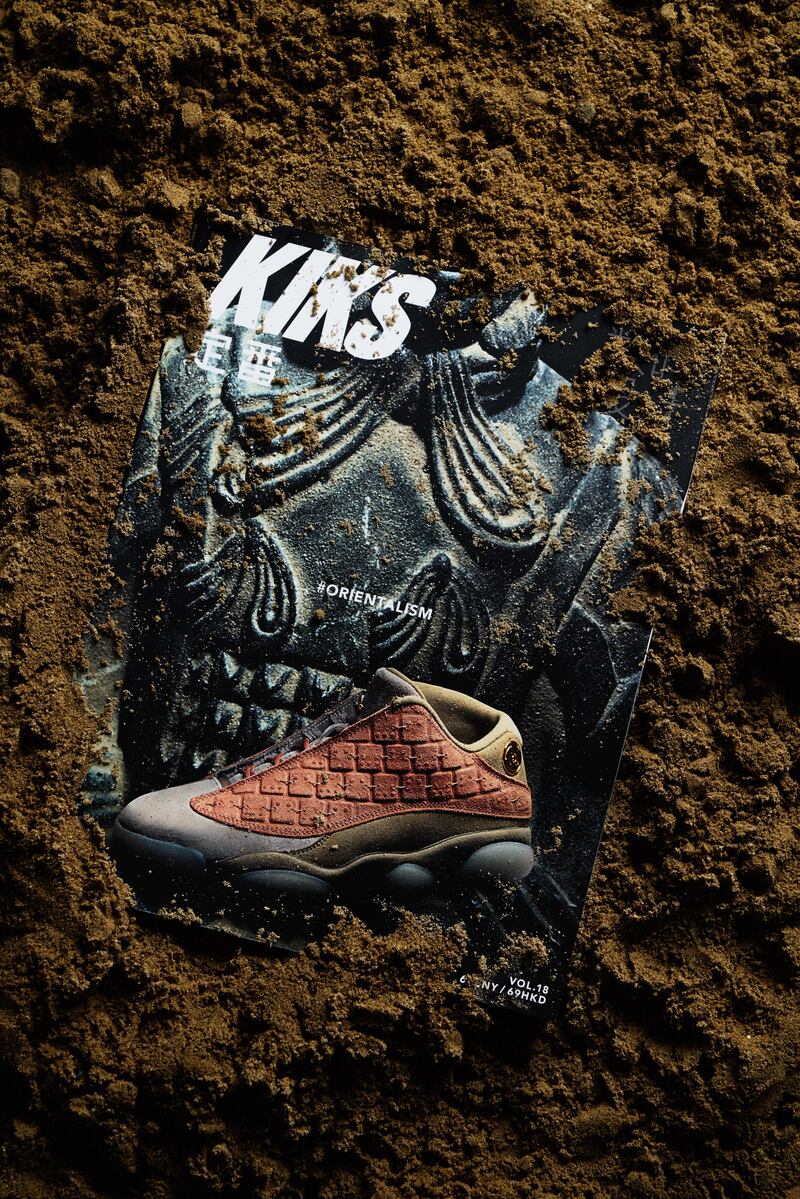
Nowre, founded by former Yoho employee Chris Wang and his business partner Peter Zhong, a marketing specialist who had previously worked at Nike, is one of the country’s foremost homegrown youth culture media platforms with a heavy streetwear focus that highlights stories from China. Its Hong Kong-based competitor Hypebeast takes more of an international outlook.
As Yoho’s struggles continue, Nowre is rapidly taking up market share. Wang and Zhong were quick to identify growth areas in streetwear that their Western counterparts have been notoriously reticent to address. In 2019, for example, the platform launched NowHer, in order to speak to the sizeable and fast-growing audience of female streetwear and sneaker enthusiasts.
Specialist international media outlets are also looking to benefit from the appeal of the streetwear scene in China. Arby Li, now vice president of content strategy at Hypebeast, and Zarah Cheng, the Hong-Kong based editor-in-chief of Hypebae, have long held important roles in delivering news from the international streetwear scene.
Meanwhile, Qz Zhang, a self-described “quintessential third culture kid who has lived in over seven major cities in the world since primary school,” was tapped in July by global youth culture media outlet Complex when it entered China last year, to be the platform’s creative director, a role which will encompass the organisation of the first ComplexCon China gathering once pandemic restrictions have been sufficiently eased, she told BoF.
The convention, much like its US counterpart, will bring together artists, musicians, brands and retailers at the forefront of street and youth culture.
“At this point, streetwear and street culture have been well adopted by young Chinese consumers,” said Zhang who previously worked on Innersect, and also serves as managing editor of fashion publication i-D China.
“Through ComplexCon, we want to pay respect to those who are pioneers of Chinese streetwear, but from here, we want to celebrate those at the forefront of the merging streetwear cultures of East and West.”
THE LATEST NEWS FROM CHINA
by Annachiara Biondi
时尚与美容
FASHION & BEAUTY
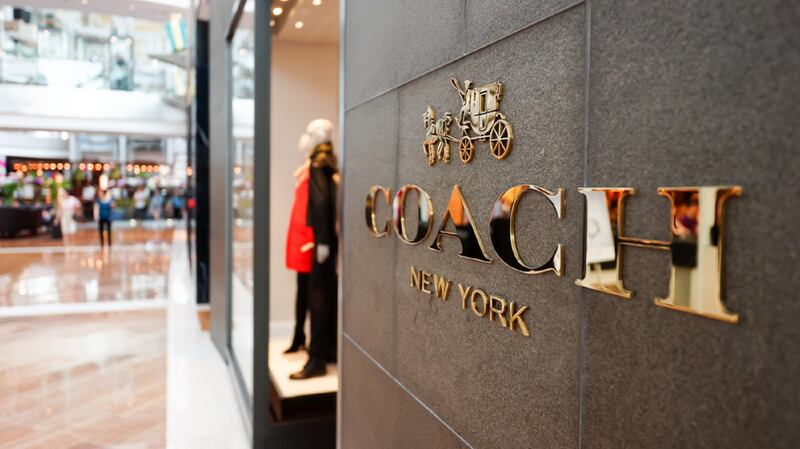
Tapestry Targets Lower-Tier Cities with Store Openings
American fashion conglomerate Tapestry, which owns accessible luxury brands Coach, Stuart Weitzman and Kate Spade, will open 30 new stores in China in the next 12 months, including locations in fourth-tier cities such as Baoji, in Shaanxi province. The company, which opened 60 stores in the country in the last two years, is betting on the long-term growth of China’s accessible luxury market as economic uncertainty pushes consumers to become more cost-conscious. According to analysts, compared to competitors such as Michael Kors and Tory Burch, Tapestry is already in the lead in China in terms of market penetration and market share. (Business of Fashion)
Li Ning Military Designs Fuel Nationalist Backlash
Chinese sportswear brand Li Ning found itself at the centre of controversy after a series of looks from its latest collection started trending on Weibo. Netizens deemed the outfits, which featured green military-style jackets, cargo trousers and hats with earflaps, too similar to the military uniforms worn by Japanese soldiers during World War II, when large parts of Chinese territory were occupied by the Japanese army. A WeChat post by Li Ning’s head of e-commerce Ye Feng, explaining that the hat designs were actually inspired by headwear from China’s Ming Dynasty and accusing Chinese customers of “lack of deep understanding of their own culture”, only worsened the backlash, prompting the brand to issue an official apology on Weibo. (Jing Daily)
China’s Lockdowns Hit APAC Sales at Estée Lauder, SMCP
American beauty conglomerate Estée Lauder reported a drop of 7 percent in net sales in Asia Pacific for the three months ending Sept. 30, citing Covid-19 restrictions in China, with limited traffic in brick-and-mortar stores, and curtailed tourism in the southern island province of Hainan, which impacted travel retail. The company, which reported an overall decline in sales of 11 percent, expects China’s uneven recovery to continue to affect its business in the next quarter, forecasting sales falling by up to 19 percent compared with the same period last year. China’s lockdowns also weighed on French fashion brand SMCP’s sales in the Asia Pacific region, which declined almost 12 percent to €61.6 million ($61.3 million) in the third quarter. Italian luxury group Moncler bucked the trend, reporting a 14 percent increase in APAC driven by some reopenings in the Chinese market. (Business of Fashion, Yahoo Style)
LVMH and Hang Lung Properties Ink Sustainability Partnership
Luxury conglomerate LVMH and Hong Kong-based property developer Hang Lung Properties, whose portfolio includes Shanghai’s luxury mall Plaza 66, signed a sustainability partnership aimed at guaranteeing the environmental performance of 26 LVMH brands across over 90 retail spaces in mainland China. As part of the partnership, Hang Lung Properties will lower energy consumption across 100 shopping malls by 18 percent by 2025, while LVMH pledged to track stores’ energy consumption. LVMH’s head of image and environment Antoine Arnault said the company is looking to sign similar partnerships in the US and Europe. (WWD)
消费与零售
CONSUMER & RETAIL
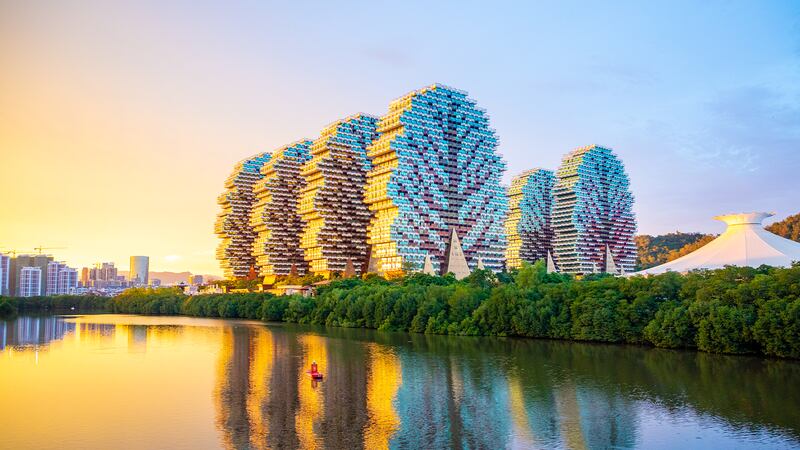
Swire Properties and CTG Duty Free to Build Resort in Hainan
Hong Kong developer Swire Properties has partnered with China Tourism Group Duty Free Corporation (CTG Duty Free) to build a retail-led resort complex in Sanya, in the southern island province of Hainan. The project, which will be completed in phases starting from 2024, will be developed on a site that the companies acquired for 1.3 billion yuan ($179 million) and will be part of the Sanya International Duty Free Complex. The Chinese government plans to turn Hainan, an important destination for offshore duty free shopping, into the world’s largest free-trade port by 2035. On Oct. 29, CTG Duty Free also inaugurated CDF Haikou International Duty Free City in Hainan, a shopping centre which has been dubbed the largest single duty free shop in the world. (SCMP)
Resale Platform Plum Secures $100 Million Funding Round
Resale luxury platform Plum, or Hongbulin in Chinese, received $100 million in a Series C funding round by Zhuanzhuan, an online marketplace for secondhand goods. Founded in 2017, Plum has previously attracted funding from Matrix Partners and Unity VC. Together with Feiyu and Alibaba’s Xianyu, Plum is among the leading platforms in the nascent Chinese resale market, which is expected to exceed 208 billion yuan ($32.8 billion) by 2025, according to consultancy group iiResearch. (Inside Retail Asia)
Hong Kong Airport Retailers Reopen with Luxury Push
After years of strict Covid-19 travel restrictions, which have all but wiped out the city’s tourism industry, Hong Kong lifted some of its requirements for overseas travellers at the end of September and is now hoping for a revival of tourism traffic and spending. Burberry, Cartier, Gucci, Prada and Tiffany & Co recently reopened their shops in Hong Kong Airport, in time for the city’s Global Financial Leaders’ Investment Summit, a three-day international event that kicked off on Nov. 1, and the Hong Kong Sevens, a popular sporting event. Also on Nov. 1, luxury brands Louis Vuitton and Hermès unveiled duplex stores in the airport, while a Chanel duplex is expected to open on Nov. 7. The airport also launched a loyalty scheme, a reward point scheme and “monthly travel surprises.” (TRBusiness)
科技与供应链
TECH & SUPPLY CHAIN
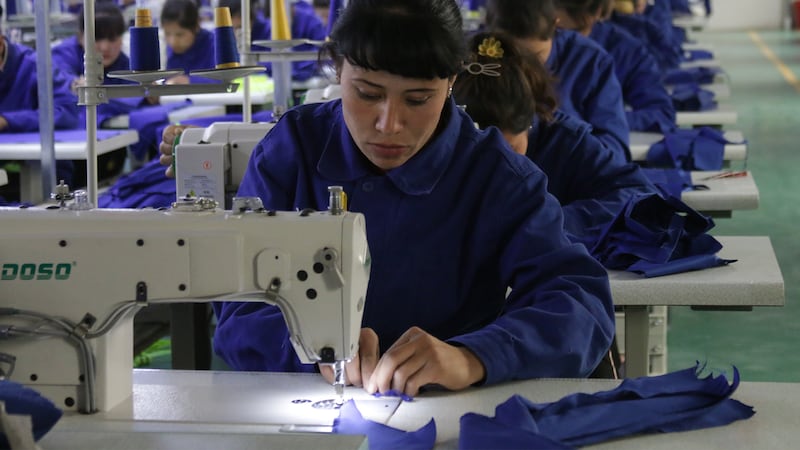
Uighur Group Sues the UK Government Over Imports from China
The World Uyghur Congress (WUC), an organisation of exiled Uighur groups, has sued the UK government, accusing it of failing to investigate imports of cotton products that could be made using forced labour from China’s Xinjiang province. Several investigations, including a recent report from the UN High Commissioner for Human Rights, have found evidence of forced labour and other human rights violations against Uighur and other Muslim minorities in the province. Beijing denies the accusations. The WUC lawsuit is part of a larger strategy from Uighur activists to pressure governments and companies into action. A similar case has already been filed against the Irish government, while more are planned for other European countries. (Financial Times)
China Unveils New Measures to Encourage Foreign Investment
In a move to boost foreign investment, China’s National Development and Reform Commission said it will support foreign-invested manufacturing firms with imports, exports, trade and customs clearance, as well as ease travel under the country’s Covid-19 restrictions for companies’ executives, technicians and their families. China recently expanded the number of sectors open to foreign investment to 519 from 480. According to the Ministry of Commerce, in the first nine months of 2022 China’s foreign direct investment increased 15.6 percent year on year to 1 trillion yuan ($138.12 billion). (Fibre2Fashion, Reuters)
China Reports Declines in Manufacturing PMI, Exports and Industrial Profits
China’s official Purchasing Manufacturing Index (PMI) dropped to 49.2 in October from 50.1 in September, affected by Covid-19 restrictions and a contraction in real estate construction. According to ING chief economist Iris Pang, the situation will not improve in November, as a weaker export demand is also expected to slow down activity. Data released on Nov. 7 shows that Chinese exports already dropped 0.3 percent year-on-year in October, the first decrease since 2020. The National Bureau of Statistics reported that the country’s major industrial firms saw profits fall 2.3 percent in the first nine months of 2022, compared with the same period last year. (Fibre2Fashion, Financial Times)
政治,经济与社会
POLITICS, ECONOMY, SOCIETY
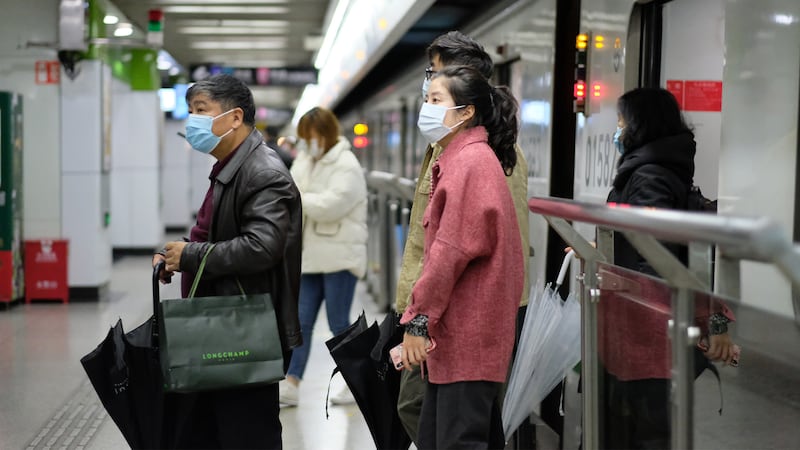
China Sticks with ‘Zero-Covid’ as Business Confidence Plummets
At a news conference on Nov. 5, disease control official Hu Xiang described China’s current Covid-19 measures as “completely correct, as well as the most economical and effective,” putting an end to rumours that Beijing was about to relax some of its policies. In the past few weeks, localised restrictions have been imposed on a growing number of cities, including Guangzhou, Wuhan and Xian, while chaotic scenes have been reported at the Foxconn plant in Zhengzhou, where thousands of workers had allegedly been put in quarantine after an outbreak. According to a survey by the American Chamber of Commerce in Shanghai, China’s ongoing Covid-19 restrictions have brought businesses’ optimism about the future to a record low, with less than half of the companies surveyed expecting revenues to grow in 2022. Around a fifth of the 307 companies surveyed also said they were pulling back on investment in the country. (Politico, Financial Times)
China Regulators Tighten Celebrity Endorsement Rules
The State Administration for Market Regulation, together with six other government bodies, has published new rules around celebrity advertising that ban celebrities from endorsing products in the health, education and financial commodities sectors. According to the new regulations, celebrities are to take responsibility for the products that they do endorse, while companies should not engage with “unethical” celebrities. “Celebrities should consciously practise socialist core values in their advertising endorsement activities, and endorsement activities should conform to social morals and traditional virtues,” read the new regulations. The move is part of a larger crackdown launched by President Xi Jinping on both the entertainment and tech industries. (The Guardian)
LVMH’s L Catterton Launches First Yuan-Denominated Fund
L Catterton, the private equity company backed by luxury conglomerate LVMH, has completed a first-close of around 1 billion yuan for its first yuan-denominated fund, with the intention of investing in early-stage firms in the consumer sector. The company wants to raise 2 billion yuan ($275.44 million) for the fund. (Pe-insights)
China-based Asian Infrastructure Investment Bank Increases Lending
Multilateral development institution Asian Infrastructure Investment Bank (AIIB), which is a China-based alternative to the World Bank, said it will increase lending by $10 billion each year to 2025. By that time, it expects upwards of 50 percent of its lending to go toward climate change mitigation, with loans going to countries with credible macroeconomic policies and firm commitment to net zero. The bank also said that, while its main focus will remain in Asia, it will expand operations in Abu Dhabi and increase the number of projects in Africa and Latin America. (Financial Times)
China Decoded wants to hear from you. Send tips, suggestions, complaints and compliments to robb.young@businessoffashion.com.
With consumers tightening their belts in China, the battle between global fast fashion brands and local high street giants has intensified.
Investors are bracing for a steep slowdown in luxury sales when luxury companies report their first quarter results, reflecting lacklustre Chinese demand.
The French beauty giant’s two latest deals are part of a wider M&A push by global players to capture a larger slice of the China market, targeting buzzy high-end brands that offer products with distinctive Chinese elements.
Post-Covid spend by US tourists in Europe has surged past 2019 levels. Chinese travellers, by contrast, have largely favoured domestic and regional destinations like Hong Kong, Singapore and Japan.